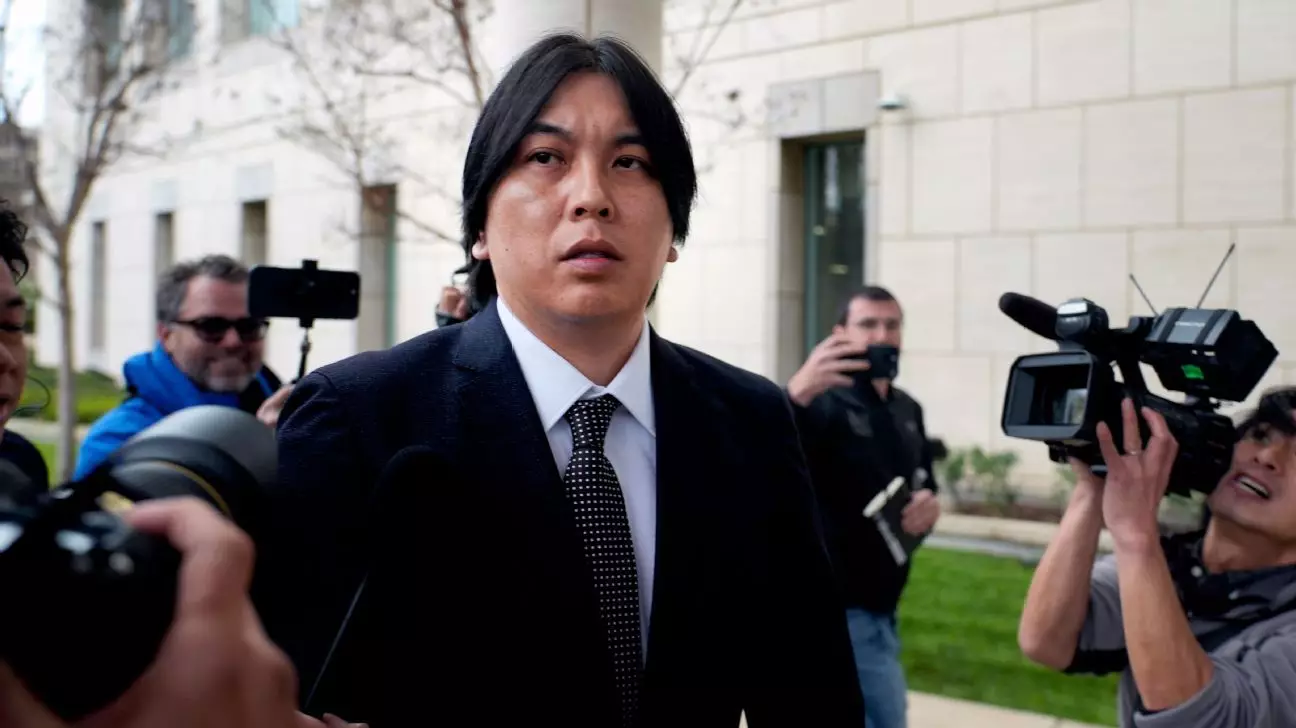In a stark reminder of how trust can be shattered in an instant, Ippei Mizuhara, the former interpreter for Los Angeles Angels’ sensation Shohei Ohtani, has been sentenced to a staggering 57 months in prison for embezzling approximately $17 million from the very individual he was supposed to support. This case reflects a deeply troubling intersection of loyalty, betrayal, and the darker side of gambling that has plagued numerous individuals, especially those who find themselves in positions of power over others.
In March 2023, the Dodgers severed ties with Mizuhara after an ESPN investigation unveiled a disturbing pattern of theft. Mizuhara allegedly executed countless wire transfers from Ohtani’s accounts to an illegal bookmaker, an act of betrayal of epic proportions against a player who has become a household name in Major League Baseball. Originally brought in to facilitate communication and ease cultural transitions, Mizuhara’s role morphed into one of considerable trust, a fact that makes his actions even more egregious.
U.S. District Judge John W. Holcomb’s comments during the sentencing served to underline the severity of Mizuhara’s crimes. Describing the amount stolen as “shockingly high,” Holcomb pointed out that many individuals go an entire lifetime without earning so much money. The judge not only underscored the enormity of the theft but also highlighted the heartache caused to Ohtani, a man admired not just for his athletic prowess, but also for his character and integrity.
Mizuhara’s defense hinged on a narrative of gambling addiction, a commonly invoked rationale in legal cases involving financial crimes. His attorney, Michael G. Freedman, argued that this addiction played a significant role in the defendant’s misdeeds, claiming it overwhelmed his decision-making capabilities. However, the prosecution countered that there was scant evidence to support the claim of a long-standing gambling addiction prior to the financial theft.
It’s a paradox that addiction itself can warp the perceived morality of individuals, but in Mizuhara’s case, the sheer scale of his theft raises difficult questions about accountability. Eric Mitchell, an Assistant U.S. Attorney, pointed out that Mizuhara began stealing from Ohtani when the superstar was earning a mere $250,000, effectively siphoning off nearly 50% of the income Ohtani was generating at the time. This revelation complicates the narrative of addiction, suggesting that perhaps there were other forces at play, such as greed and a blatant disregard for the well-being of others.
What echoes through this convoluted affair is the essence of misplaced trust. Mizuhara was not only given a prominent position but was also a confidant, growing close to Ohtani in a world rife with pressures and expectations. It is a complex relationship, where intimacy becomes entangled with financial oversight, resulting in an outcome that obliterates the foundations of friendship and integrity.
In a broader context, the Mizuhara case serves as a cautionary tale for all professionals involved in high-stakes environments, particularly those that require trust, such as sports. Ambition can push individuals into compromising situations, where they might exploit their roles for personal gain. The resulting fallout is devastating, not just for the betrayed party, but for the entire ecosystem reliant on mutual trust.
Looking Forward
As Mizuhara prepares to face his sentence, with the looming probability of deportation back to Japan, the implications of his actions will reverberate for years to come. He must contend with the reality of repayment, with the judge ordering nearly $17 million in restitution to Ohtani and an additional $1.1 million to the IRS for tax fraud.
In essence, the misadventures of Ippei Mizuhara illustrate how trust, once dismantled, can leave unbridgeable gaps that impact not only the victims but the entire community. The story is a somber reminder of how swiftly fortunes can shift, compelling us all to reevaluate the trust we place in others, regardless of their affiliation or past behavior. The ramifications of deceit extend far beyond financial costs; they fundamentally redefine relationships and livelihoods.


Leave a Reply